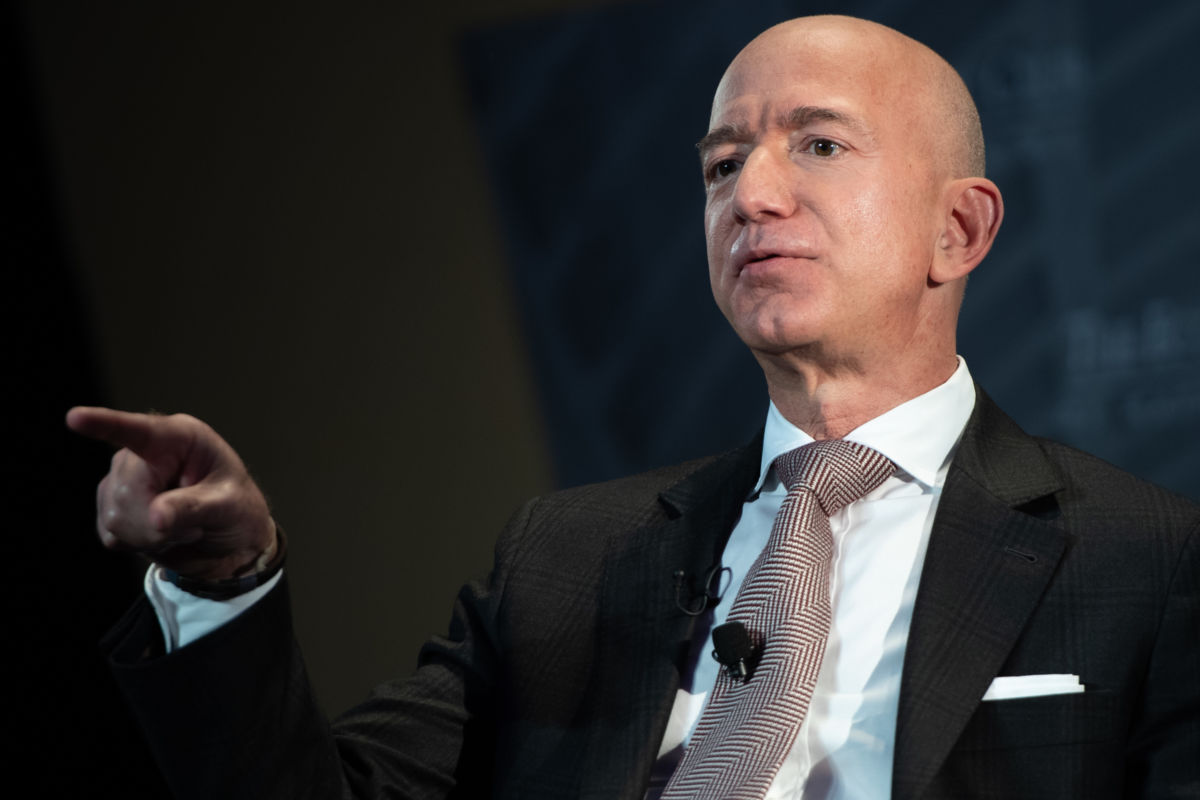Support justice-driven, accurate and transparent news — make a quick donation to Truthout today!
In recent weeks, there have been several bold calls for large increases in progressive taxation. First we had Representative Alexandria Ocasio-Cortez (D-NY), often referred to as AOC, proposing a top marginal tax rate on income over $10 million. This sent right-wing talking heads into a frenzy, leading many to show they don’t know the difference between a marginal tax rate and an average tax rate. (AOC’s 70 percent rate would only apply to an individual’s income above $10 million.)
More recently, we had Senator Elizabeth Warren propose a wealth tax that would apply to people with assets of more than $50 million. This tax could have Jeff Bezos sending more than $3 billion a year to the Treasury.
Given the enormous increase in inequality over the last four decades, and the reduction in the progressivity of the tax code, it is reasonable to put forward plans to make the system more progressive. But, the bigger source of the rise in inequality has been a growth in the inequality of before-tax income, not the reduction in high–end tax rates. This suggests that it may be best to look at the factors that have led to the rise in inequality in market incomes, rather than just using progressive taxes to take back some of the gains of the very rich.
There have been many changes in rules and institutional structures that have allowed the rich to get so much richer. (This is the topic of my free book Rigged.) Just to take the most obvious — government-granted patent and copyright monopolies have been made longer and stronger over the last four decades. Many items that were not even patentable 40 years ago, such as life forms and business methods, now bring in tens or hundreds of billions of dollars to their owners.
If the importance of these monopolies for inequality is not clear, ask yourself how rich Bill Gates would be if there were no patents or copyrights on Microsoft software. (Anyone could copy Windows into a computer and not pay him a penny.) Many other billionaires get their fortune from copyrights in software and entertainment or patents in pharmaceuticals, medical equipment and other areas.
The government also has rules for corporate governance that allow CEOs to rip off the companies for which they work. CEO pay typically runs close to $20 million a year, even as returns to shareholders lag. It would be hard to argue that today’s CEOs, who get 200 to 300 times the pay of ordinary workers, are doing a better job for their companies than CEOs in the 1960s and 1970s who only got 20 to 30 times the pay of ordinary workers.
Another source of inequality is the financial sector. The government has aided these fortunes in many ways, most obviously with the bailout of the big banks a decade ago. It also has deliberately structured the industry in ways that facilitate massive fortunes in financial engineering.
There is no reason to design an economy in such a way as to ensure that most of the gains from growth flow upward. Unfortunately, that has largely been the direction of policy over the last four decades.
We can ignore the inequities built into the way we have structured the economy and just try to tax the big winners, as is being proposed. However, there are two major problems with this route, one practical and one political.
The practical problem is that the rich are not stupid. They will look to find ways to avoid or evade the various progressive taxes being proposed. Both AOC and Warren have relied on advice from some top economists in describing their tax proposals, but even the best–designed tax can be gamed. (Is it worth $3 billion a year for Jeff Bezos to remain a US citizen? As a non-citizen he wouldn’t pay the wealth tax.)
Gaming the tax system will mean that we will collect considerably less revenue than a static projection would imply. It also will lead to the growth of the tax gaming industry. From an economic standpoint, this is a complete waste. We will have people designing clever ways to try to hide income and wealth, and in some cases getting very rich themselves in the process.
The political problem with going the tax route is that people attach a certain legitimacy to the idea that income gained through the market is somehow rightfully gained, as opposed to say, income from a government transfer program, like food stamps. The rich will be able to win support from many non-rich by claiming that the government has taken away what they have fairly earned.
By contrast, it is much harder for a drug company billionaire to cry foul because a drug developed with public funds, and selling at generic prices, has destroyed the market for his $100,000–a–year cancer drug. In the same vein, CEOs might have a hard time getting sympathy for the complaint that new rules of corporate governance make it easier to shareholders to bring their pay down to earth.
It is great that the rise in inequality seems likely to be a major topic in the 2020 presidential campaign. However, it is important that we think carefully about how best to reverse it.
Media that fights fascism
Truthout is funded almost entirely by readers — that’s why we can speak truth to power and cut against the mainstream narrative. But independent journalists at Truthout face mounting political repression under Trump.
We rely on your support to survive McCarthyist censorship. Please make a tax-deductible one-time or monthly donation.
